calsfoundation@cals.org
Joseph Carter Corbin (1833–1911)
Joseph Carter Corbin, journalist, served as Arkansas state superintendent of public instruction during Reconstruction and was the founder and president of what is now University of Arkansas at Pine Bluff (UAPB), the first African American public institution of higher education in Arkansas.
Joseph C. Corbin was born in Chillicothe, Ohio, on March 26, 1833, the eldest son of free Black parents, William and Susan Corbin. He had eleven siblings. He attended school during the winter months, a common practice at the time.
In 1848, Corbin traveled to Louisville, Kentucky, to assist Reverend Henry A. Adams as a teacher. He taught school for some years and then attended Ohio University at Athens. He graduated with a BA in art in 1853 and an MA in art in 1856. An honorary doctoral degree was later conferred on Corbin by an unknown Baptist institution in the South. According to some sources, Corbin worked as a messenger in the Bank of Ohio Valley at Cincinnati and edited and published a newspaper, The Colored Citizen, for eight years.
On September 11, 1866, Corbin married Mary J. Ward, a Kentucky native, in Cincinnati. They had six children, two of whom lived to adulthood. In 1872, the family moved to Little Rock (Pulaski County), where Corbin worked as a reporter for the Arkansas Republican and later as chief clerk in the Little Rock Post Office.
From 1873 to 1875, Corbin served as Arkansas’s superintendent of public instruction and, by virtue of holding that office, was president of the University of Arkansas Board of Trustees. As president, he signed the contract for the construction of University Hall (now called Old Main), which was the first building at the University of Arkansas (UA) in Fayetteville (Washington County). It was very unusual for a Black man to hold such a position during that time, but he was qualified and connected with the Republican Party establishment in power then in the South.
Corbin later taught mathematics, according to the best available evidence, for two years at Lincoln University in Jefferson City, Missouri, beginning in the fall of 1874. Corbin had worked on legislation to create a college in Arkansas for Black students. That legislation was adopted in 1873, but there was no time to put it into operation because Reconstruction was overthrown with the Brooks-Baxter War of 1874 and Republican state officials lost their jobs. Corbin did not sell his house in Little Rock, and when he was vacationing there, U.S. Attorney General Augustus H. Garland (later governor) encouraged him to open Branch Normal College of the Arkansas Industrial University in Jefferson County. In 1875, Corbin was appointed principal of Branch Normal, a position he held until 1902. The school is now the University of Arkansas at Pine Bluff.
While at Branch Normal, he conducted teacher training institutes in Arkansas and Oklahoma, under the state superintendent of public schools, believing that such courses inspired teachers to improve and gave them the opportunity to see exhibitions and new methods of teaching. With R. C. Childress, a teacher at Branch Normal, Corbin formed the Teachers of Negro Youth, the first state association for Black teachers, in 1898. Corbin was the first president of that organization. Twenty years after his death, the organization became known as the Arkansas Teachers Association, which, after integration, merged with the Arkansas Education Association in 1969.
Branch Normal’s enrollment grew from seven students in 1875 to 241 by 1894. A two-story brick building with classrooms and an assembly hall was constructed. A dormitory for girls was also built, and an industrial department was established with courses in sewing, typing, and printing. These were added between 1880 and 1900. Corbin’s daughter worked as the sewing and industrial teacher for women, and his wife taught art at the school. Corbin himself wrote articles on mathematics and constructed mathematical puzzles that were published in Barnes’ Educational School Visitors, the Mathematical Visitor, the Mathematical Magazine, and the Mathematical Gazette.
Corbin spoke and read Greek, Latin, German, French, Spanish, Italian, Hebrew, and Danish. He seems to have taught himself because he was very interested in languages. He taught Greek and Latin at Branch Normal until the curriculum was modified in 1889. He played and taught students to play piano, organ, and flute and trained the Normal School choir, which was featured at every commencement. A civic-minded man, Corbin served as secretary and third Grand Master of the Arkansas chapter of the Prince Hall Masons and as vice president of the Colored Industrial Fair.
Corbin experienced conflict with the Board of Trustees of Branch Normal as well as the state legislature, which recommended he be fired in April 1893 because of an investigation into alleged financial mismanagement of the school. He was dismissed in 1902. In 1905, he became principal of Merrill Public School in Pine Bluff.
Corbin died on January 9, 1911, in Pine Bluff and is buried in Forest Home Cemetery in Forest Park, Illinois, a suburb of Chicago. His gravesite was added to the National Register of Historic Places on April 17, 2023; a plaque was unveiled to dedicate the site on May 1, 2024.
On June 28, 2017, Ohio University Chillicothe (OUC), in conjunction with UAPB and Ohio University, unveiled a historical marker honoring Corbin on the OUC campus.
UAPB, celebrating its sesquicentennial year, declared September 27, 2023, to be Joseph Carter Corbin Day; a celebration, spearheaded by 1957 Branch Normal graduate and Corbin biographer Gladys Turner Finney, included speeches by Pine Bluff’s mayor, UAPB’s chancellor, and Arkansas’s state historian. A portrait of Corbin was unveiled, and participants visited a new sign marking the intersection of W. 2nd Ave. and Oak St. (the original site of Branch Normal College) showing that W. 2nd Ave. had been renamed Joseph C. Corbin St.
For additional information:
Finney, Gladys Turner. “Bright Light: Scholar and Educator Joseph Carter Corbin.” Echoes (January & February 2025): 30–33.
———. Joseph Carter Corbin: Educator Extraordinaire and Founder of the University of Arkansas at Pine Bluff. Little Rock: Butler Center Books, 2017.
“Joseph Carter Corbin Historical Marker Unveiled at OUC.” UAPB News, June 28, 2017. https://uapbnews.wordpress.com/2017/06/28/joseph-carter-corbin-historical-marker-unveiled-at-ouc/ (accessed March 2, 2023).
Logan, Rayford W., and Michael Winston. Dictionary of American Negro Biography. New York: W.W. Norton, 1982.
Murrell, I. C. “Corbin’s Legacy Celebrated.” Arkansas Democrat-Gazette, September 28, 2023. https://www.arkansasonline.com/news/2023/sep/28/corbins-legacy-celebrated/ (accessed September 28, 2023).
Rothrock, Thomas. “Joseph Carter Corbin and Negro Education in the University of Arkansas.” Arkansas Historical Quarterly 30 (Winter 1971): 277–314.
Simmons, William J. Men of Mark: Eminent, Progressive and Rising. Chicago: Johnson Publishing Company, 1970.
“UAPB Founder Joseph Carter Corbin Paved the Way for African American Higher Education in Arkansas.” UAPB News, September 25, 2023. https://uapbnews.wordpress.com/2023/09/25/uapb-founder-joseph-carter-corbin-paved-the-way-for-african-american-higher-education-in-arkansas/ (accessed September 28, 2023).
“UAPB Honors 150 Years of Excellence with Professor Joseph Carter Corbin Day.” UAPB News, September 28, 2023. https://uapbnews.wordpress.com/2023/09/28/uapb-honors-150-years-of-excellence-with-professor-joseph-carter-corbin-day/ (accessed September 29, 2023).
Izola Preston
Fayetteville, Arkansas
This entry, originally published in Arkansas Biography: A Collection of Notable Lives, appears in the CALS Encyclopedia of Arkansas in an altered form. Arkansas Biography is available from the University of Arkansas Press.
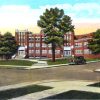
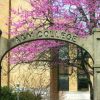

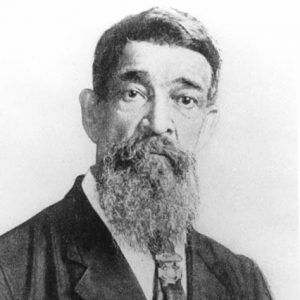

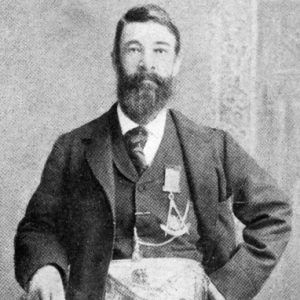
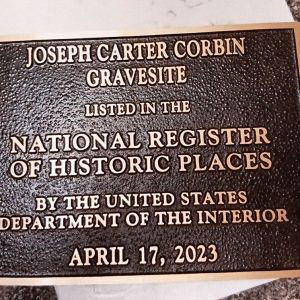
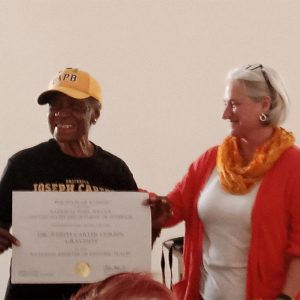
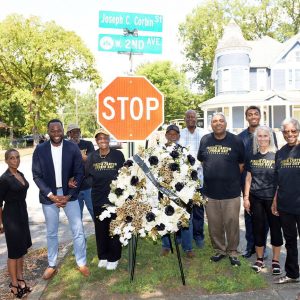





Second Ave. in Pine Bluff was renamed Joseph C. Corbin Street by a resolution by the city council as part of Professor Joseph Carter Corbin Day celebrating the sesquicentennial of the founding of UAPB. At the unveiling ceremony on Sept. 26, 2023, at the original site of the college, Second and Oak St., the speakers were Dr. Gladys Turner Finney, Caleb Williams as a representative of UAPB student government, and state Senator Stephanie Flowers. Professor Corbin opened Branch Normal College, the predecessor of UAPB, on Sept. 27, 1875, in a rented house at present-day Second and Oak with seven students, ages 9 to 15, none of whom could read beyond what was in the 3rd grade reader. Throughout his twenty-seven-year tenure at the college, he maintained a preparatory school along with the college. Professor Corbin produced the first African Americans in Arkansas with Bachelor of Arts degrees. He was a leader at both the secondary and collegiate levels, and he magnified Pine Bluff as a center of learning for African Americans.
2023 marks the sesquicentennial of the founding of the University of Arkansas at Pine Bluff. Professor Joseph Carter Corbin Day, September 27, 2023, will celebrate this historic event.
Please help to endow the UAPB Professor Joseph Carter Corbin Memorial Scholarship.
Ways to Give:
1. By check payable to UAPB Foundation Fund, Office of Development, 1200 N. University Drive, Slot 4981, Pine Bluff, Arkansas 71601.
2. Online at http://www.uapb.edu/give
3. Go to Other and write in name or Call 870-575-8701.
As a descendent of Joseph Carter Corbin, I’d like to point out that it was found that Corbin did not mismanage funds but came into opposition with very powerful political leaders of the day who sought to destroy his extraordinarily honorable reputation/name. These men conspired against him to concoct this plot alleging mismanagement of funds. It was proven that these allegations were unfounded. His name was cleared during the period.